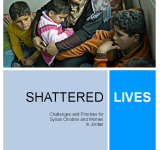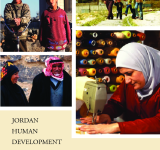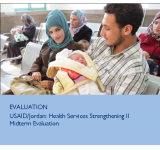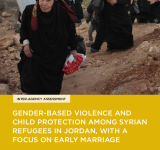With an executive summary on the Syrian refugees situation in Jordan;; the report combines the conclusions of detailed assessments in various areas including as child protection and gender-based violence;; education;; water sanitation and hygiene;; and nutrition and health. It provides a holistic picture of the situation faced by Syrian children and women in Jordan to draw out recommendations for necessary plans of action. Some key findings of the report include growing challenges for water;; sanitation and hygiene situation in Za’atari camp;; several threats to the nutritional status and health of Syrian girls;; boys and women and increasing violence against adolescents. Bringing together the voices of children and women at the camps;; the report examines the situations of Syrian refugees in host communities and refugee camps and finds key recommendations based on them.
recommendations
This report consists of eight chapters and aims to summarise the key concepts of human development. It introduces the Human Development Index;; provides an overview of Jordan's human development achievements;; examines the regional vulnerability context that has constrained Jordan's options in its pursuit of social and economic development;; provides a platform for the poor to express their views and perceptions in relation to their poverty status;; reviews the policies;; institutions and processes that affect the poor;; examines the government's attempts to stimulate entrepreneurialism;; promotes the application of a rights-based approach;; in which all citizen are equally empowered and have the capacity and the appropriate enabling environment that allows them to claim their entitlements according to law. Finally;; the study examines the various reform initiatives in progress and assesses the extent to which Jordan is committed to the process.
The report presents the findings;; conclusions and recommendations of a midterm evaluation of Health Systems Strengthening (HSS) II;; a five year (2009-2014);; $73 million USAID-funded project. The strategy of the HSS II is to institutionalize strengthened health systems in support of reduced fertility rates and improved women's health. It works with the public health sector;; namely the Ministry of Health;; the Royal Medical Service and the Jordan University Hospital. The report finds that the project has met 13 of its 23 targets for year 3 and is on track to meet all its objectives by the end of the project. Expected results are public sector initiatives in safe motherhood and reproductive health. The HSS II project;; with its close ties with the Ministry of Health for its responsiveness to health needs and integrated approach to health delivery;; has strengthened critical health systems through its support to health management information system;; renovations;; accreditation;; referrals and capacity-building. The report recommends the USAID to negotiate the removal of a requirement that midwives be supervised intrauterine device insertion;; advocate for innovative incentive schemes and varying salary grades that reward midwives and doctors providing FP services and revise project indicators to reflect health outcomes and impact. Further recommendations include continuing support of a broad-scale mass media behavior change and communication campaign and programs that build on gains in maternal and neonatal health.
The report aims to address the particular needs and cultural dynamics of Syrian refugees residing in Jordan;; especially with regards gender-based violence and child protection issues. It presents a comprehensive range of perspectives from urban Syrian refugees and local Jordanian decision makers in government;; community-based organizations and the religious and education sectors. The assessment of this report is based on data collected through three methodologies including questionnaire survey to refugees outside the Za’atari refugee camp;; focus group discussions in regions across Jordan and in-depth interviews. Key findings of the report are 1. The rates of early marriage are high;; 2. A significant percentage of children contribute to the household’s income and 3. Restrictions on women and girls’ mobility constrain their participation in social and economic activities and access to basic services. The report recommends measures to prevent acts of sexual exploitation and abuse and ensure the needs of the most vulnerable members of the Syrian refugee population in the cities.



